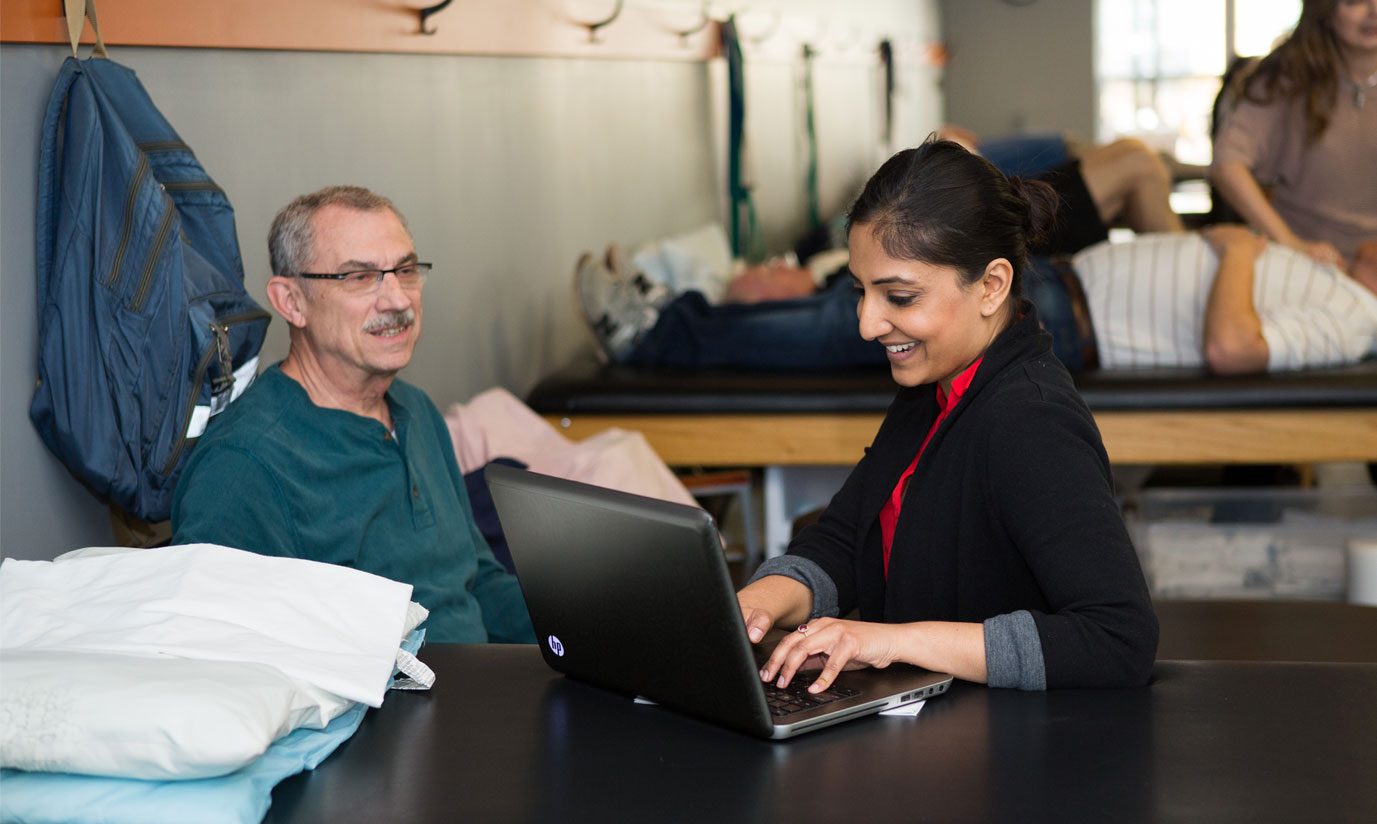
Concussion/mTBI Management
Whether you want a quick review or an in-depth exploration, you can find the APTA Learning Center's courses on Concussion/mTBI on this page. Explore common signs and symptoms, differential diagnosis, and intervention strategies for both PTs and PTAs from experts in their fields.
Browse Our Offerings
Brain Injury Certificate
This six-part series covers physical therapy management following brain injury, with content spanning concussion, post-concussion syndrome, and traumatic brain injury. Courses address rehabilitation strategies targeting physical, cognitive, and psychosocial recovery, including mindfulness-based approaches, cervical spine management, and task-specific interventions.
CEU: 1.0 (10 contact hours)
How to Address Cognitive and Behavioral Changes Following Traumatic Brain Injury
This course examines common cognitive and behavioral sequelae following traumatic brain injury and the role of physical therapy across phases of recovery. Content focuses on targeted interventions, interdisciplinary collaboration, and strategies PTs can apply across acute, outpatient, and community-based settings.
CEU: 0.2 (2 contact hours)
Cervicogenic and Post-Traumatic Headache
This course is brought to you by the Department of Veteran's Affairs. This course focuses on recognizing and managing cervicogenic and post-traumatic headaches, conditions commonly seen following head and neck injury. Content covers diagnostic criteria, key physical therapy exam findings, referral considerations, and evidence-based PT interventions for both headache types.
CEU: 0.1 (1 contact hour)
Cervical Spine Management after a Concussive Event
Explore the signs and symptoms of cervical spine impairments commonly seen after concussions, and learn to distinguish them from other overlapping manifestations. This course discusses best practices from the recent Concussion Clinical Practice Guideline (CPG), intervention strategies, and evidence-based clinical management.
CEUs: 0.2 (2 contact hours)
Concussion: The Not-So-Mild Traumatic Brain Injury
Gain essential concepts of concussive injuries for direct-access Physical Therapists. This module covers concussion phenotypes, key evaluation aspects, intervention strategies, and referral processes, emphasizing collaboration within an interdisciplinary rehabilitation team.
CEUs: 0.4 (4 contact hours)
Updates from the Amsterdam International Consensus in Sport
Dr. Kathryn Schneider shares updates from the Amsterdam International Consensus on Concussion in Sport and provide tips to help in the management of concussion in your clinical practice.
CEU: 0.1 (1 contact hour)
Trauma-Informed Meditation, Breathwork, and Yoga for Concussion and TBI
Learn about mindfulness meditation, breathwork, and yoga for improving physical, cognitive, and psychosocial health after concussion and TBI. This course highlights their benefits and addresses the lack of accessibility in physical rehabilitation, aiming to change that.
CEUs: 0.2 (2 contact hours)
Neuromusculoskeletal Screening for the Cervical Region and Other Medical Considerations
In partnership with the Veterans Administration, this course covers neuromuscular screening for patients with neck pain and radicular symptoms. It highlights red flags and referral patterns, emphasizing when to screen for other pathologies and when it may not be necessary.
CEUs: 0.4 (4 contact hours)
Centennial Lecture Series: Get Your Head in the Game: Basic Concussion Assessment and Management
Explore the evaluation and management of post-concussion symptoms using five clinical subtypes: anxiety/mood, cognitive, ocular-motor, post-traumatic migraine, and vestibular, along with the modifiers of the cervical spine and sleep.
CEUs: 0.4 (4 contact hours)
Testimonials
"Thank you for a very informative webinar. I thought it was valuable that the information was presented by someone who has lived experience."
"I'm a current SPTA and this was very informative and interesting to learn TBI interventions"
To stay updated on our latest courses and expert speakers, sign up for our monthly newsletter by updating your APTA profile: Go to MyAPTA, navigate to “Email preferences,” and check “Continuing education, conferences, and events from APTA, chapters, and special-interest sections” under “Other Email.”
| Access Date | Quiz Result | Score | Actions |
|---|


